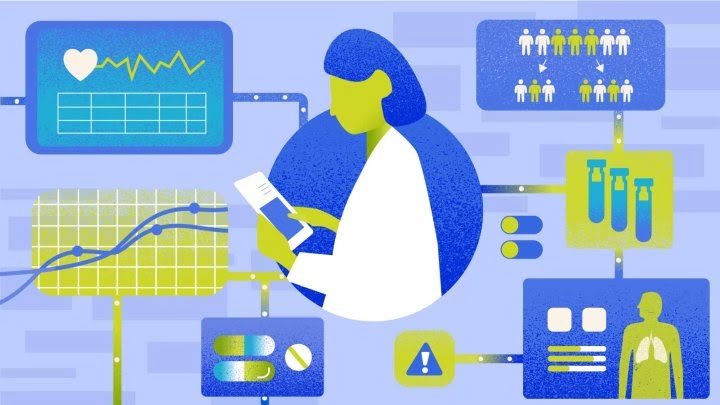Introduction
The landscape of mental health care has seen a significant transformation with the rise of online therapy. As technology evolves, so do our methods to seek support and guidance for mental health concerns. No longer confined to traditional office settings, individuals can access a wide range of therapeutic options from the comfort of their homes, workplaces, or even while traveling. In this article, we’ll delve into the advantages of talking to a therapist online, illustrating why it has become a popular and effective alternative to traditional face-to-face therapy.
Accessibility and Convenience
One of the most compelling benefits of online therapy is its accessibility and convenience. Traditional treatment often requires clients to commute to a therapist’s office, which can be a significant barrier for those living in remote areas, those with mobility issues, or those whose schedules don’t allow travel time. Online therapy eliminates these obstacles, making it possible for anyone with an internet connection to access mental health services. Whether you’re looking for a therapist in Miami or in a rural town, online platforms break geographical limitations. This kind of accessibility is especially beneficial for individuals with busy schedules, parents who cannot leave their children, or those who face anxiety related to traveling to therapy sessions. The ease of access means more people can seek help without logistical barriers.
Anonymity and Comfort
Another significant advantage of online therapy is its anonymity and comfort level. Many individuals feel more at ease discussing personal issues from the privacy of their own home, which can sometimes be a more comforting setting than a therapist’s office. This comfort level can encourage more open and honest communication during therapy sessions, which is crucial for effective treatment. The anonymity factor also helps those who may feel stigmatized by visiting a therapist’s office, giving them the freedom to seek help without societal judgment. Additionally, being in a familiar and comforting environment can reduce the initial anxiety that often comes with starting therapy, making it easier for clients to take that first step. This approach helps reduce the stigma associated with seeking mental health services, allowing more people to get the help they need.
Cost-Effectiveness and Flexibility
Online therapy is often more cost-effective than traditional in-person sessions. Therapists can reduce overhead costs without physical office space, translating to lower client fees. This reduction in cost lowers the financial barriers that often prevent individuals from seeking therapy in the first place. Additionally, the flexibility of scheduling online sessions means that clients can fit therapy into even the busiest schedules. Whether it’s an early morning session before work or a late-night appointment after putting the kids to bed, online platforms offer unmatched scheduling flexibility, making it easier to prioritize mental health. This flexibility extends to the session format, allowing clients to choose between video calls, chat, or phone sessions based on their comfort level and convenience. This variety makes it simpler for clients to maintain their therapy schedules without compromising their daily obligations.
Broader Range of Therapist Options
When seeking therapy, finding the right therapist is crucial to the success of the treatment. Online therapy opens up a broader range of options, allowing clients to select from a diverse pool of therapists without being limited by geographical boundaries. This variety increases the likelihood of finding a therapist who specializes in the specific issues you are facing, whether it’s anxiety, depression, or relationship concerns. This is particularly beneficial for individuals needing specialized care that might not be available locally. The more comprehensive selection also means clients can find therapists who match their cultural, linguistic, or gender preferences, enhancing the comfort and efficacy of the therapeutic relationship. This level of specialization ensures that clients receive tailored treatment that addresses their unique needs more precisely and effectively.
Advancements in Technology
Technological advancements have greatly improved the efficacy of online therapy. High-definition video calls, secure messaging systems, and the ability to share and view documents in real time enhance the overall experience. Many platforms also use AI to help match clients with suitable therapists and provide supplementary resources such as guided meditations and educational materials. These features make online therapy a highly interactive and comprehensive form of mental health care. Additionally, secure communication technology ensures that all interactions between clients and therapists remain confidential, adhering to stringent privacy standards. These technological tools enhance the therapeutic experience and make it possible to deliver evidence-based interventions effectively. Enhanced tech capabilities mean therapists can employ various interactive tools to complement their sessions, potentially improving client outcomes.
Conclusion
Online therapy has revolutionized the way we approach mental health care. Its accessibility, convenience, and additional advantages make it an appealing option for many individuals seeking support. Whether balancing a busy schedule, seeking anonymity, or looking for specialized care, online therapy offers flexible solutions that meet a wide range of needs. As technology advances, online therapy’s effectiveness and reach are only set to improve, making mental health services more inclusive and accessible. Embracing online therapy can provide the support necessary to navigate life’s challenges, promoting better mental health and well-being across diverse populations. Moving into the future, the scope and impact of online therapy are likely to expand even further, making it an indispensable part of the mental health care landscape.



